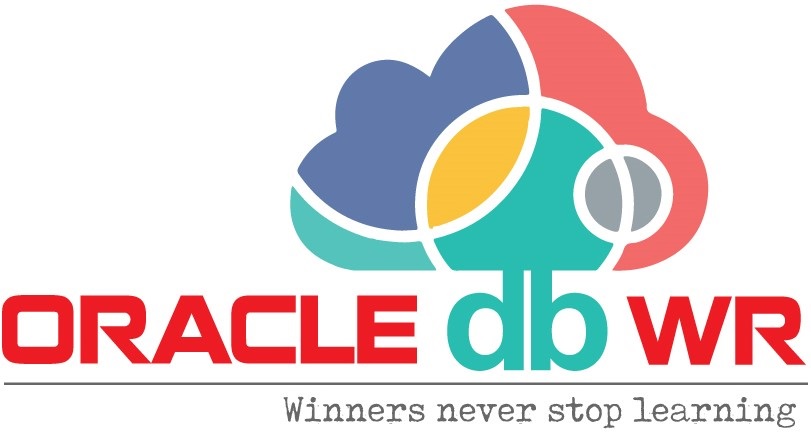Cloning a Remote PDB
Connect to the remote CDB and prepare the remote PDB for cloning.
- We need to connect the Database with local connection.Check its up and running.
- Need to create user in the remote pluggable database also with the privilege of create session , create pluggable database.
- Switch the remote PDB to read only mode.when the source pluggable database prepared with tnsnames and listener as well.
- Create Database link in the root container pointing to the user which we create in the remote pluggable database.
- We can now clone the pluggable database from the root container using Database link which we created with the user connection.
- If we are not using OMF we need to convert the path using FILE_NAME_CONVERT parameter.
- Now we can check the pluggable database which we created through the clone.It has created successfully.
Step 1 : Database up and running
Step 2 : Required to set the particular pluggable database in read write mode.
Step 3 : Create a user in the remote database for use with the database link. In this case, we will use a local user in the remote PDB.
Step 4 : Open the remote PDB in read-only mode.
[oracle@ram ~]$ ps -ef|grep pmon oracle 4725 4707 0 01:09 pts/0 00:00:00 grep pmon oracle 55330 1 0 Oct10 ? 00:00:01 ora_pmon_dbwr oracle 60884 1 0 Oct10 ? 00:00:00 ora_pmon_orcl [oracle@ram ~]$ export ORACLE_SID=orcl [oracle@ram ~]$ sqlplus / as sysdba SQL*Plus: Release 12.2.0.1.0 Production on Thu Oct 11 11:09:51 2018 Copyright (c) 1982, 2016, Oracle. All rights reserved. Connected to: Oracle Database 12c Enterprise Edition Release 12.2.0.1.0 - 64bit Production SQL> select name from v$database; NAME --------- ORCL SQL> conn / as sysdba Connected. SQL> show user USER is "SYS" SQL> alter session set container=orclpdb; Session altered. SQL> alter pluggable database orclpdb open; Pluggable database altered. SQL> select name,open_mode from v$pdbs; NAME OPEN_MODE ---------- ---------- ORCLPDB READ WRITE SQL> col name for a15; SQL> select name,open_mode from v$pdbs; NAME OPEN_MODE -------------- ---------- ORCLPDB READ WRITE SQL> create user clone_user identified by clone_user; User created. SQL> grant create session,create pluggable database to clone_user; Grant succeeded. SQL> conn / as sysdba Connected. SQL> alter pluggable database orclpdb close; Pluggable database altered. SQL> alter pluggable database orclpdb open read only; Pluggable database altered. SQL> exit Disconnected from Oracle Database 12c Enterprise Edition Release 12.2.0.1.0 - 64bit Production
Step 5 :Switch to the local server and create a “tnsnames.ora” entry pointing to the remote database for use in the using clause of the database link.
[oracle@ram ~]$ cd /u01/app/oracle/product/12.2.0.1/db_1/network/admin/ [oracle@ram admin]$ cat tnsnames.ora # tnsnames.ora Network Configuration File: /u01/app/oracle/product/12.2.0.1/db_1/network/admin/tnsnames.ora # Generated by Oracle configuration tools. DBWR = (DESCRIPTION = (ADDRESS_LIST = (ADDRESS = (PROTOCOL = TCP)(HOST = ram.localdomain.com)(PORT = 1521)) ) (CONNECT_DATA = (SERVICE_NAME = dbwr.carrierzone.com) ) ) ORCLPDB = (DESCRIPTION = (ADDRESS_LIST = (ADDRESS = (PROTOCOL = TCP)(HOST = ram.localdomain.com)(PORT = 1521)) ) (CONNECT_DATA = (SERVICE_NAME = dbwr.carrierzone.com) ) ) PDB5 = (DESCRIPTION = (ADDRESS_LIST = (ADDRESS = (PROTOCOL = TCP)(HOST = ram.localdomain.com)(PORT = 1521)) ) (CONNECT_DATA = (SERVICE_NAME = pdb5.carrierzone.com) ) ) PDB6 = (DESCRIPTION = (ADDRESS_LIST = (ADDRESS = (PROTOCOL = TCP)(HOST = ram.localdomain.com)(PORT = 1521)) ) (CONNECT_DATA = (SERVICE_NAME = pdb6.carrierzone.com) ) ) [oracle@ram admin]$ tnsping ORCLPDB TNS Ping Utility for Linux: Version 12.2.0.1.0 - Production on 11-OCT-2018 11:21:29 Copyright (c) 1997, 2016, Oracle. All rights reserved. Used parameter files: /u01/app/oracle/product/12.2.0.1/db_1/network/admin/sqlnet.ora Used TNSNAMES adapter to resolve the alias Attempting to contact (DESCRIPTION = (ADDRESS_LIST = (ADDRESS = (PROTOCOL = TCP)(HOST = ram.localdomain.com)(PORT = 1521))) (CONNECT_DATA = (SERVICE_NAME = dbwr.carrierzone.com))) OK (30 msec)
Step 6 :Connect to the local database to initiate the clone.
[oracle@ram admin]$ export ORACLE_SID=dbwr [oracle@ram admin]$ sqlplus / as sysdba SQL*Plus: Release 12.2.0.1.0 Production on Thu Oct 11 11:22:09 2018 Copyright (c) 1982, 2016, Oracle. All rights reserved. Connected to: Oracle Database 12c Enterprise Edition Release 12.2.0.1.0 - 64bit Production SQL> select name,open_mode from v$pdbs; NAME OPEN_MODE ---------- ---------- PDB$SEED READ ONLY PDB5 MOUNTED PDB6 MOUNTED SQL> col name for a15 SQL> select name,open_mode from v$pdbs; NAME OPEN_MODE --------------- ---------- PDB$SEED READ ONLY PDB5 MOUNTED PDB6 MOUNTED SQL> alter session set container = pdb5; Session altered. SQL> alter pluggable database pdb5 open read only; Pluggable database altered.
Step 7 :Create a database link in the local database, pointing to the remote database.
SQL> alter pluggable database all open; Pluggable database altered. SQL> drop database link dblink; drop database link dblink * ERROR at line 1: ORA-02024: database link not found SQL> create database link dblink connect to dblink identified by clone_user using 'orclpdb'; Database link created.
Step 8 :Create a new PDB in the local database by cloning the remote PDB. In this case we need to bother with FILE_NAME_CONVERT parameter for file name conversions we are not using Oracle Managed Files (OMF).
Step 9 :We can see the new PDB has been created, but it is in the MOUNTED state.
Step 10 :The PDB is opened in read-write mode to complete the process.
SQL>create pluggable database orclpdbnew from orclpdb@dblink file_name_convert='/u01/app/oracle/oradata/orcl/orclpdb/','/u01/app/ oracle/oradata/orcl/orclpdbnew/'); Pluggable database created. SELECT name, open_mode FROM v$pdbs WHERE name = 'ORCLPDBNEW'; NAME OPEN_MODE --------------- ---------- ORCLPDBNEW MOUNTED SQL> ALTER PLUGGABLE DATABASE orclpdbnew OPEN; SELECT name, open_mode FROM v$pdbs WHERE name = 'ORCLPDBNEW'; NAME OPEN_MODE ------------------------------ ---------- ORCLPDBNEW READ WRITE SQL>
Thus the pluggable database created successfully with the remote clone.
Catch Me On:- Hariprasath Rajaram
LinkedIn: https://www.linkedin.com/in/hari-prasath-aa65bb19/
Facebook: https://www.facebook.com/HariPrasathdba
Facebook Group: https://www.facebook.com/groups/894402327369506/
Facebook Page: https://www.facebook.com/dbahariprasath/?
Twitter: https://twitter.com/hariprasathdba



